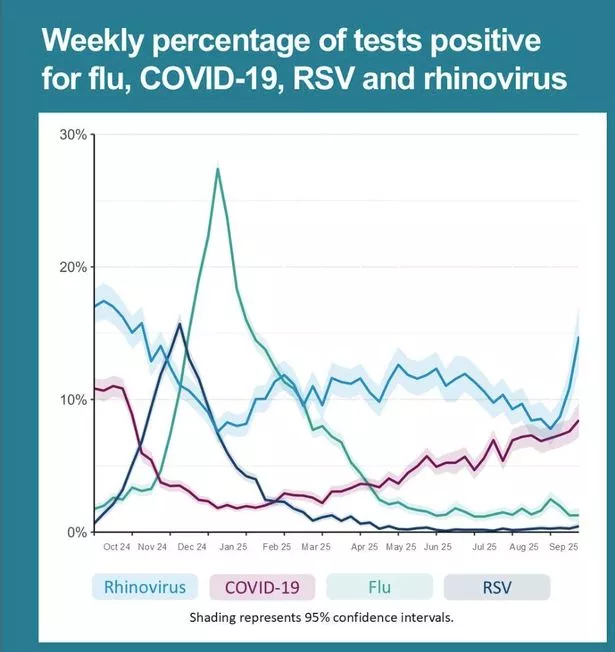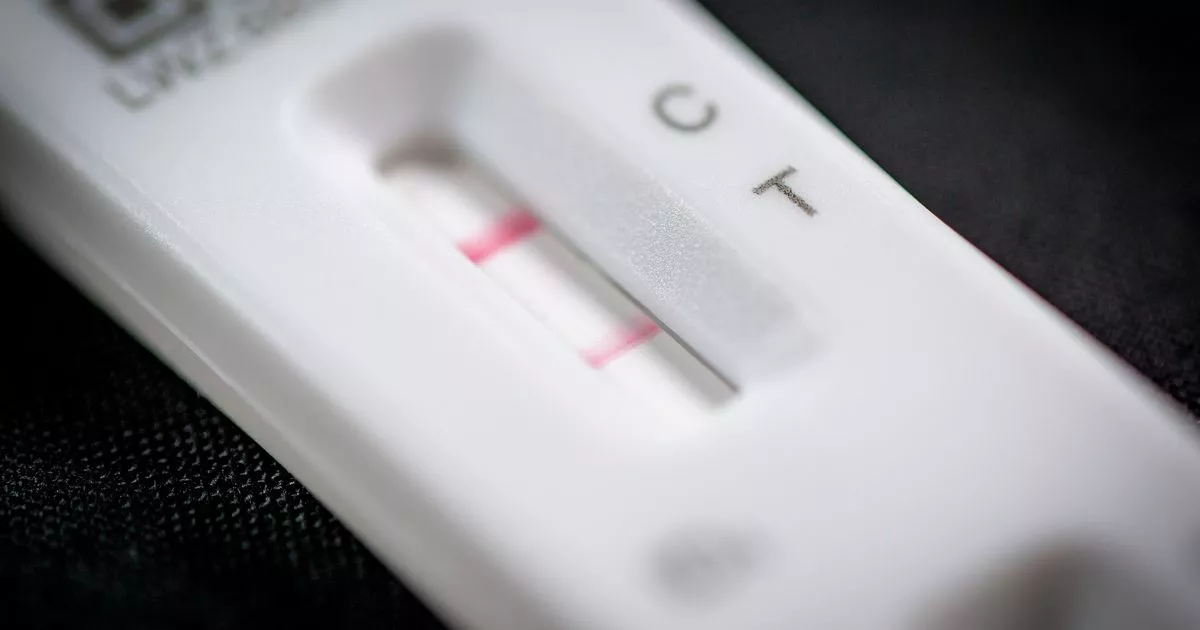The World Health Organisation has designated the new covid variant as ‘under monitoring’ NHS Covid-19 lateral flow tests showing positive coronavirus results(Image: Daily Mirror)
NHS Covid-19 lateral flow tests showing positive coronavirus results(Image: Daily Mirror)
The UK Health Security Agency (UKHSA) has shared its weekly percentage of tests positive for flu, Covid-19, RSV and Rhinovirus. The health agency data shows it is seeing flu and Covid-19 slowly begin to rise and rhinovirus experiencing a “sharp rise” of cases.
Covid-19 activity increased slightly and circulated at low levels. Respiratory syncytial virus (RSV) continued to show low activity and circulated at baseline levels. In sequenced samples, the most prevalent lineage was XFG. The strain is called Stratus and it has two variants, XFG and XFG.3.
Dr Alex Allen, consultant epidemiologist of the UK Health Security Agency (UKHSA), said: “It is normal for viruses to mutate and change over time.”
The World Health Organisation has designated the XFG as a “variant under monitoring” and has shared that the public health risk posed by XFG is evaluated as low at the global level.
Hospital admissions for covid are also increasing, according to UKHSA data. The overall weekly hospital admission rate for Covid-19 this week increased to 2.73 per 100,000 compared with 2.00 per 100,000 in the previous week.
Covid-19 isn’t the only virus that has seen cases increasing this week. Rhinovirus positivity (laboratory surveillance) increased to 14.8% compared with 10.9% in the previous week.
UKHSA says: “Noticing lots of cold symptoms and cases of the sniffles? We’re seeing a sharp increase in rhinovirus, which causes the common cold, as shown in our latest weekly data. This isn’t unexpected for this time of year when kids go back to school and mixing increases.”
 Weekly percentage of tests positive for flu, Covid-19, RSV and Rhinovirus(Image: UKHSA)
Weekly percentage of tests positive for flu, Covid-19, RSV and Rhinovirus(Image: UKHSA)
Rhinoviruses are the most frequent cause of the common cold and are a common viral trigger for asthma attacks. Most rhinovirus infections cause no symptoms or mild symptoms. They can also cause severe illness, especially if you have a weakened immune system.
There are no immunisations to prevent rhinovirus infection. However, there are vaccines for other respiratory viruses that can cause severe outcomes in some people.
For adults and children six months and older, Centre for Disease Control and Prevention recommends getting a current Covid-19 and flu vaccine.
Dr Jamie Lopez Bernal, consultant epidemiologist at UKHSA, said: “Flu and Covid-19 levels are starting to slowly increase. While this is to be expected at this time of year, now is the time for people to come forward for their winter vaccines if they’re eligible, before we start to see more of these viruses in circulation in the winter months.
“Vaccination offers the best protection against flu, Covid-19 and RSV which is why it’s vital that eligible groups get vaccinated.
“If you have symptoms of flu or Covid-19 such as a high temperature, cough and feeling tired and achy, try to limit your contact with others, especially those who are vulnerable.
“If you have symptoms and need to leave the house, our advice remains that you should wear a face covering. Washing hands regularly and using and disposing tissues in bins can reduce the spread of respiratory illnesses.”
